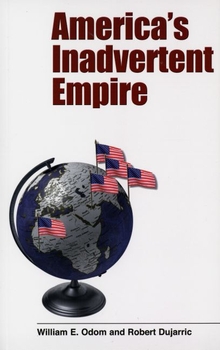Hamas
WARNING
You are viewing an older version of the Yalebooks website. Please visit out new website with more updated information and a better user experience: https://www.yalebooks.com
Politics, Charity, and Terrorism in the Service of Jihad
Matthew Levitt; Foreword by Dennis Ross
How does a group that operates terror cells and espouses violence become a ruling political party? How is the world to understand and respond to Hamas, the militant Islamist organization that Palestinian voters brought to power in the stunning election of January 2006? This important book provides the most fully researched assessment of Hamas ever written. Matthew Levitt, a counterterrorism expert with extensive field experience in Israel, the West Bank, and Gaza, draws aside the veil of legitimacy behind which Hamas hides. He presents concrete, detailed evidence from an extensive array of international intelligence materials, including recently declassified CIA, FBI, and Department of Homeland Security reports.
Levitt demolishes the notion that Hamas’ military, political, and social wings are distinct from one another and catalogues the alarming extent to which the organization’s political and social welfare leaders support terror. He exposes Hamas as a unitary organization committed to a militant Islamist ideology, urges the international community to take heed, and offers well-considered ideas for countering the significant threat Hamas poses.
Published in cooperation with the Washington Institute for Near East Policy
Listen to a podcast lecture from Levitt -- recently held at the Chatham House, London, UK (a joint BICOM and Chatham House event).
Levitt discusses his book at the Transatlantic Institute Brussels, Belgium. (April 2007)
“Compelling. . . . Levitt’s book is a solid guide to a despicable terrorist organization that is both influential and lethally effective.”—Ari Melber, New York Post
“How timely it is . . . to read Matthew Levitt’s Hamas. In an age of instant experts and television terrorism analysts, Mr. Levitt is the real thing. A former FBI counterterrorism analyst, he currently serves as deputy assistant secretary of the Treasury for intelligence and analysis. Mr. Levitt parses many news reports, NGO studies, court proceedings, and legal documents to separate the false rhetoric from the reality about Hamas. . . . Mr. Levitt's sketch of Hamas's history and development is also useful.”—Michael Rubin, New York Sun
“Matthew Levitt is undoubtedly one of the world's foremost experts on Hamas and an outstanding commentator on terrorism in general. I read everything he writes, and I have a very high regard for his work.”—Daniel Benjamin, former member of President Clinton's National Security Council
"In a compelling and authoritative manner, Matthew Levitt masterfully demonstrates that the charitable and social components of Hamas cannot be separated from its true terrorist nature."—Dennis M. Lormel, former chief of the Terrorist Financing Operations Section at the Federal Bureau of Investigation
“Far and away the best thing on this subject I’ve ever seen; well-written, careful, professional, fascinating.”—R. James Woolsey, former Director of Central Intelligence
“After painstaking research, Matthew Levitt, a pre-eminent specialist on Middle Eastern terrorism, dissects Hamas’ international support network. Hamas is a remarkable investigation that must be read both by the specialist and by the public.”—Rohan Gunaratna, author of Inside Al Qaeda: Global Network of Terror
"By coincidence, just as the Anti-Cair and Harris lawsuits were being shut down, Yale University Press released the most detailed study of the Hamas terror group ever offered to readers without a security clearance. The book is Hamas: Politics, Charity, and Terrorism in the Service of Jihad; the author is Matthew Levitt, the chief intelligence officer of the U.S. Department of the Treasury, and one of the world's leading experts on Hamas."—David Frum, Canada National Post
“A timely assessment of one of the world’s most prolific terrorist organizations. . . . A sobering analysis of the group’s likely priorities and of the quickly dimming prospects for peace in this most intractable of conflicts. . . . Impeccably researched and compellingly presented.”—Publishers Weekly (starred review)
“Levitt offers the fullest picture that can be drawn from available sources. His tone is rigorously analytical and nondramatic.”—David Pryce-Jones, Wall Street Journal Europe
“Levitt builds a convincing case to demonstrate that while the notion that radical Islamist groups have distinct violent and non-violent wings may be convenient for terrorists and their supporters, it does not hold up to close scrutiny. . . . A solid account of Hamas by one of the world’s most respected experts.”—Stewart Bell, Books in Canada
"As we search for a new way to understand the Middle East, it is imperative that both Israel and the rest of the world see Hamas for what it really is. For this, Levitt’s book is a superb place to start. . . . As a clarion call for a re-evaluation of our perception of and policy toward Hamas, there is no better book than Hamas, and for that, we should be grateful."—Yechiel M. Leiter, Azure
"Levitt provides a thoroughly documented exposure of the organization's dark side."—Isabel Kershner, Washington Post
"A valuable contribution to our understanding of the Palestinian question at a time when so much on the subject is sloppy of just plain wrong."—Farah Nayeri, Bloomberg News
"Minute, fascinating detail on how Hamas works."—Atlanta Journal-Constitution
"Hamas's recent election as the governing agent of the Palestinian Authority makes this excellent book even more valuable."—Library Journal (starred review)
"Copiously documented and detailed."—Caroline Glick, Jerusalem Post
"Levitt's timely and thoroughly researched new book, Hamas . . . goes well beyond these [the] tantilizing headlines. It is an important book that will serve the useful function of destroying any illusions readers may have about Hamas."—Patrick Grady, Toronto Globe and Mail
Publication Date: March 22, 2007
Publishing Partner: Published in cooperation with the Washington Institute for Near East Policy








